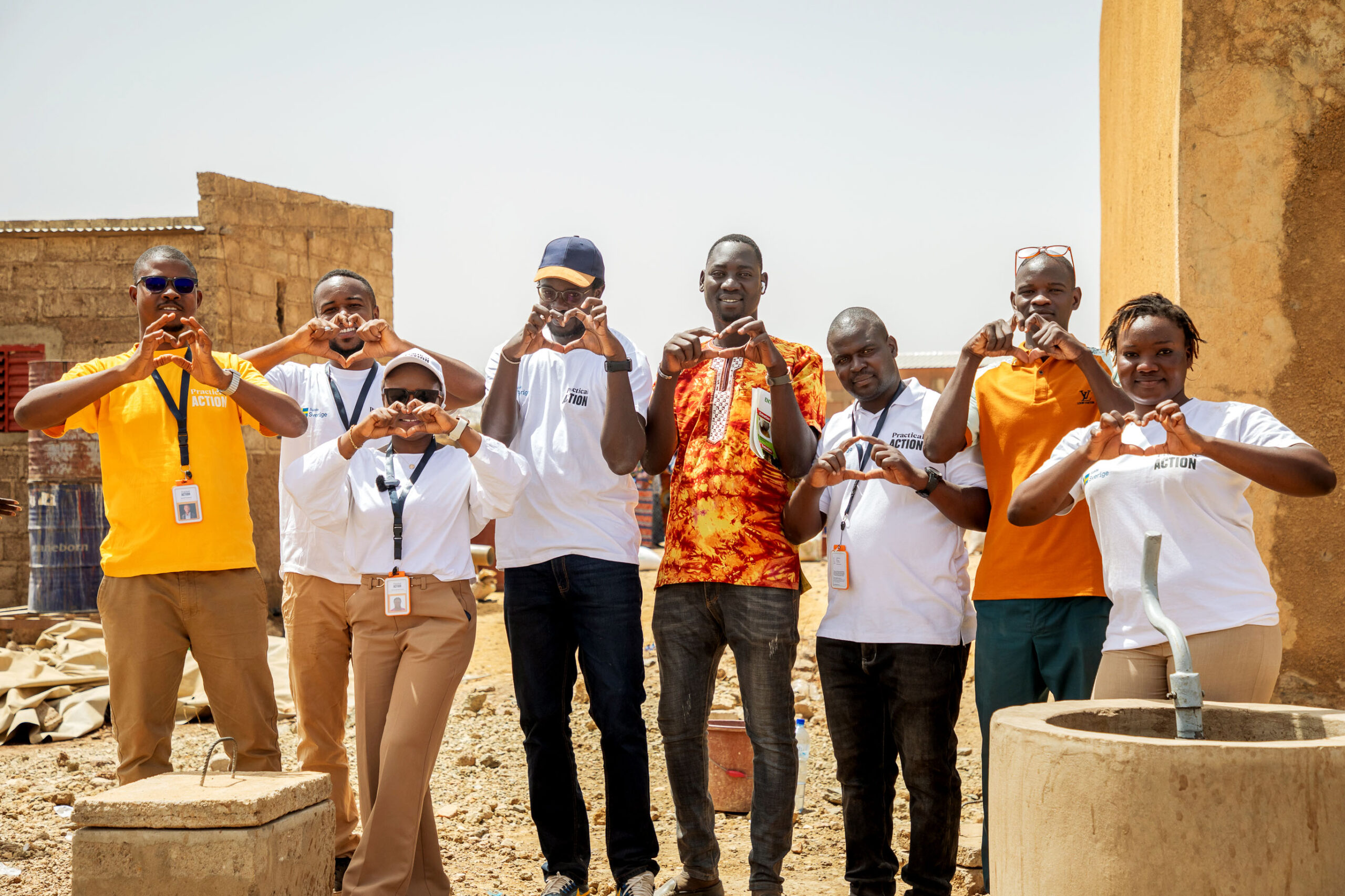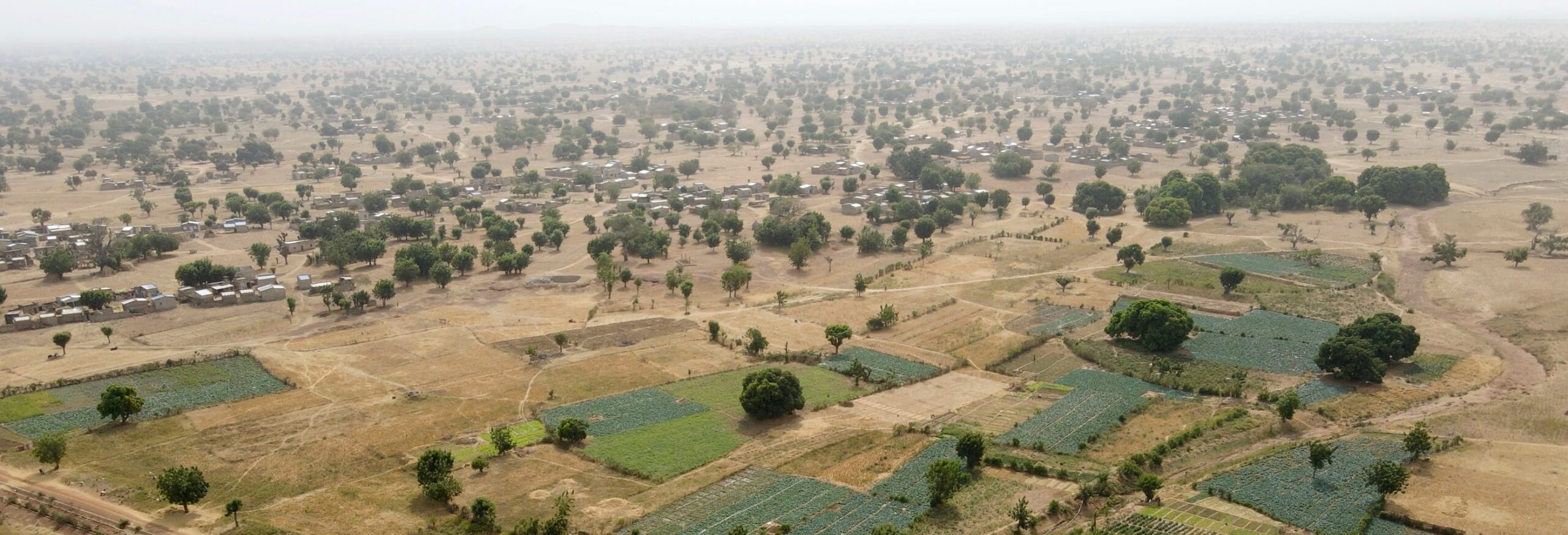
By Steve Kubate, Senior Media Engagement officer at Practical Action.
I recently had the chance to visit Burkina Faso, and it felt like a return to familiar ground. Coming from a town in Ghana, just 100 miles away from the border, the journey had a special significance for me. Despite the ongoing security concerns in the region, it was a powerful and personal experience.
I was there to hear first-hand the testimony of people living in rural communities and working with Practical Action in the central part of Burkina Faso (Toece, Gampela and Zoungou). Burkina is not an easy place to work or visit, and is home to one of the most underreported emergencies in the world.
The Norwegian Refugee Council has highlighted this area as one of the world’s most neglected displacement crises in its latest report. Currently, over 2 million people are internally displaced due to ongoing violence and insecurity, severely disrupting food production and supply chains.

By August 2023 , the number of severely food-insecure people was projected to increase by 42%, to more than 3.4 million. Alarmingly, 43,000 people were expected to face catastrophic levels of food insecurity.
The encroaching Sahara Desert is also taking a huge toll on the land and the people who depend on it. Desertification has degraded one third of Burkina Faso’s territory. This is continuing at an average of 360,000 hectares per year, equivalent to about 500,000 rugby fields.
With a dry season that lasts up to 8 or 9 months, and a dependency on neighbouring countries for its energy needs, I was eager to understand what problems people were facing and how better farming practices combined with renewable energy could help solve some of the problems the people of Burkina Faso face. This makes our work in the region more than crucial.
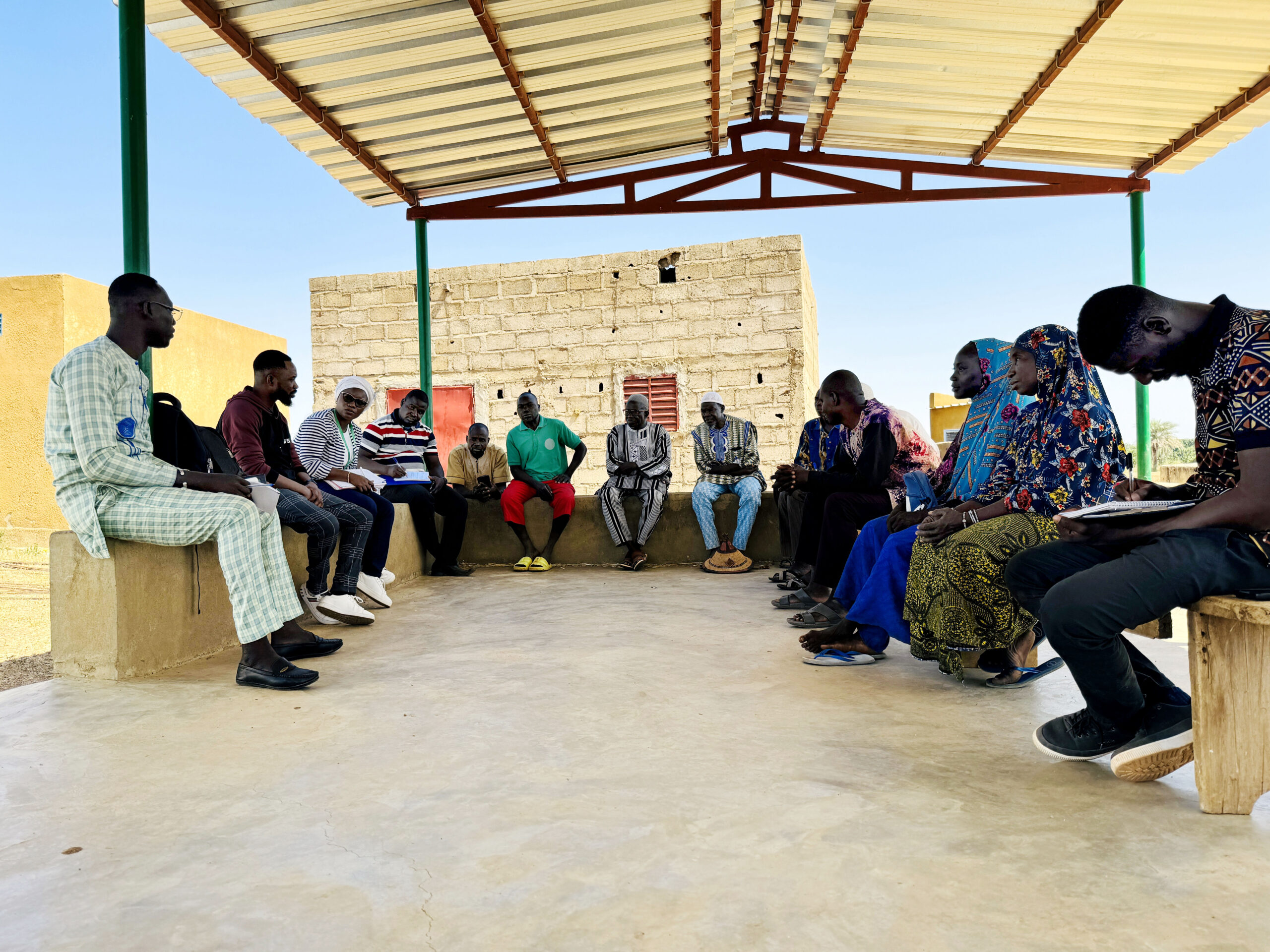
The cornerstone of our approach; let’s talk!
Practical Action is a grassroots organisation, putting people at the heart of development. We talk to representatives of all groups, find out what people need, what is already working for them and help them to come up with an action plan based on these discussions so that everyone feels ownership of the outputs.
I experienced this process during my visit and listened as farmers gathered to discuss the benefits of renewable energy and share their experiences.
These meetings are positive and full of energy, as local leaders and farmers collaborate to find sustainable solutions. The sense of unity and shared purpose is profound and drive the plans forward.
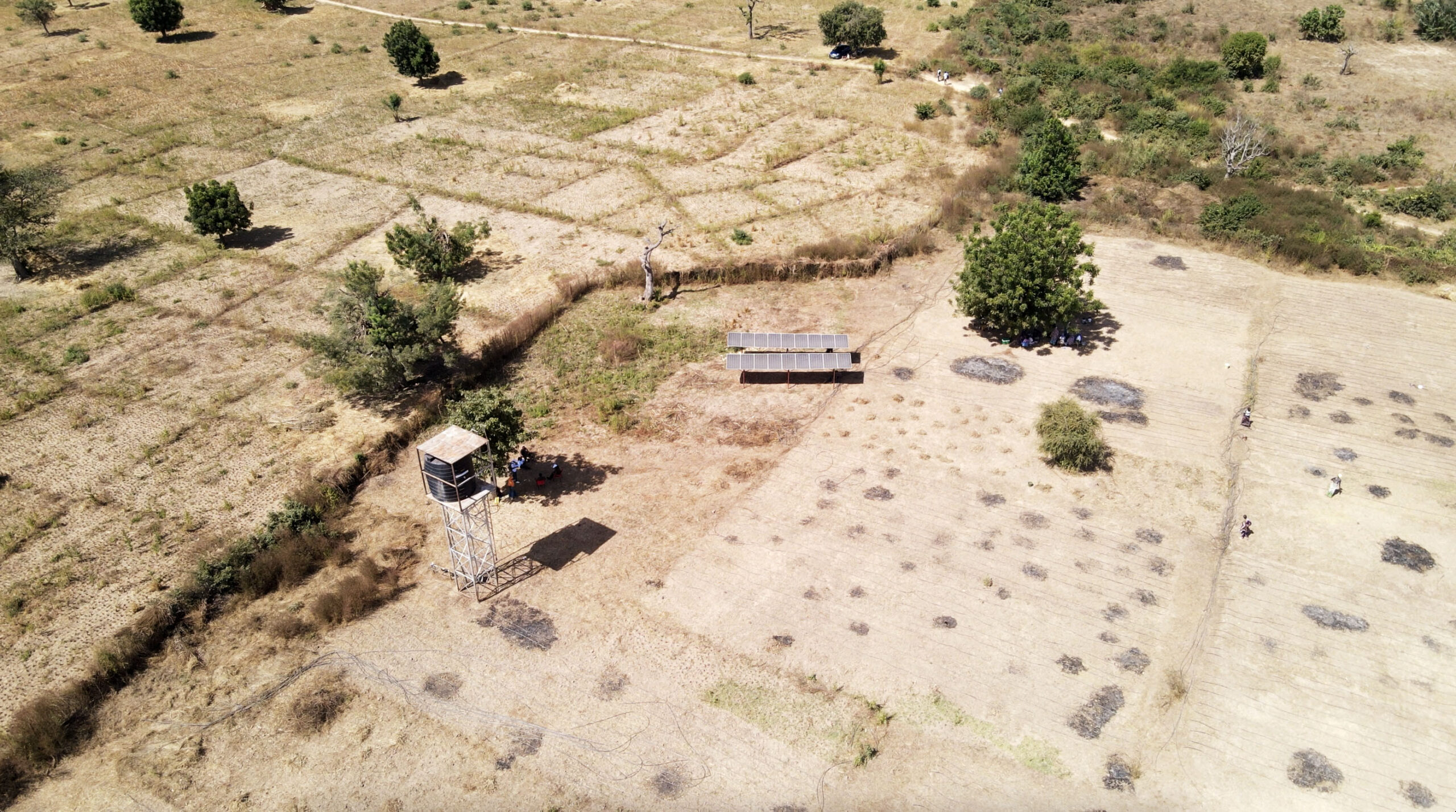
So, what is in our action plan? Solar-Powered Irrigation
As the area is mostly dry after the rainy season, solar-powered irrigation systems can provide a reliable water source, enabling farmers to cultivate their land even during dry seasons.
The water is mostly sourced from boreholes or nearby dams and then pumped to fields or to overhead water storage tanks and then used to irrigate crops.
The number of people served by a solar pumping system can vary widely depending on the size and capacity of the system. Some systems serve small communities or agricultural projects, benefiting just hundreds of people, while others support thousands. The crucial point is that we show how transformative they can be in a variety of situations.
In Burkina, we have constructed boreholes and installed solar pumping systems in 3 communities, helping nearly 15,000 people. We are also working with 6 microfinance institutions to provide credit so that many more farmers can purchase and install similar solutions.
I saw this technology in action and can say with confidence that it is a lifeline, turning arid fields into fertile grounds. It also showcases how renewable energy can combat the harsh effects of climate change, desertification, and poverty.
You can read more about why solar irrigation is so effective here.
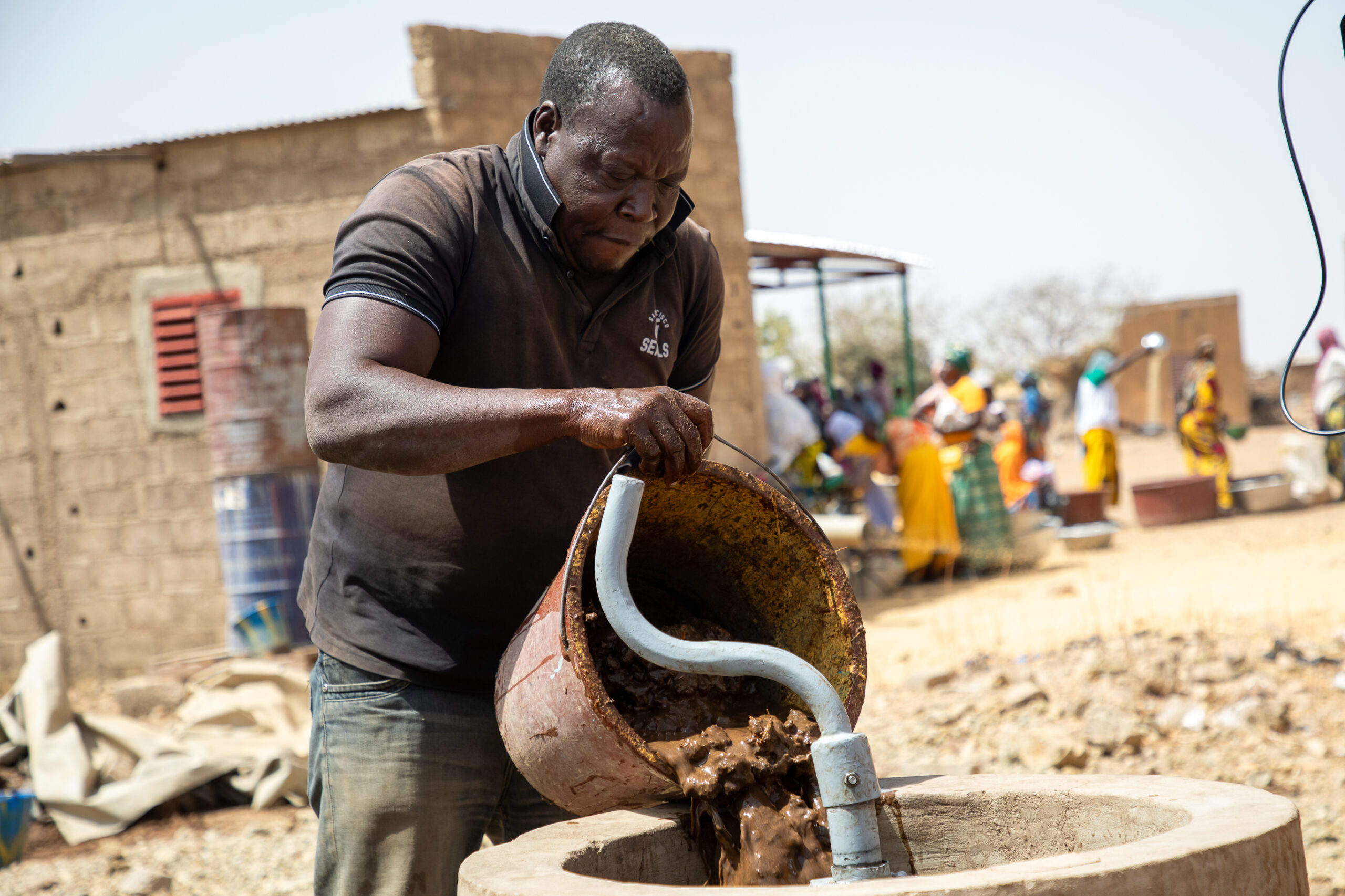
The Biodigester: A Game Changer
The biodigester is an innovative addition to the programme. It converts organic waste such as cow dung into biogas and fertiliser by using a naturally occurring bacteria in the waste to break it down in an oxygen-free environment.
Biogas can be used for cooking, generating electricity, or as a fuel, and the nutrient-rich slurry for farming.
By using biogas for cooking, the communities we work with avoid inhaling harmful smoke, which significantly improves indoor air quality and reduces respiratory issues.
Deforestation and desertification is a major issue for the region, so less reliance on wood for fuel reduces this problem.
As an excellent organic fertilizer producer, the biodigester helps to enhance soil fertility and boosts crop yields.
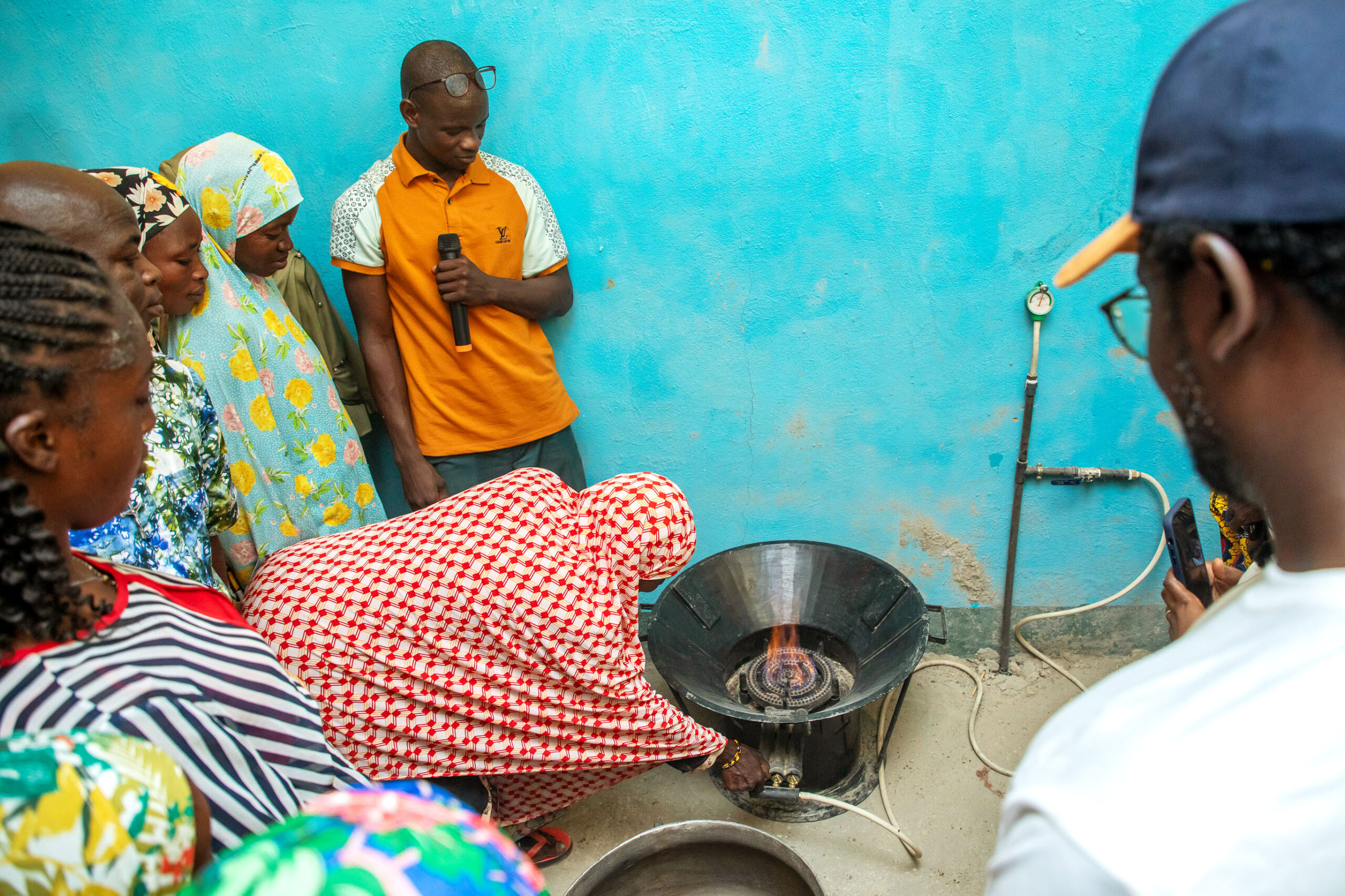
This not only supports sustainable farming practices, it reduces the need for chemical fertilizers, which can be harmful to the environment.
This innovation is a game changer for the local farmers we work with. The passion with which they operate the biodigester is infectious, as they see the immediate benefits in their daily lives and agricultural productivity.
During a chat with Lucien Thiombiano, a biodigester service provider, he told me:
“The biodigester is an innovative technology for a family. Everyone can use it and benefit as well.
“A mother can use the biogas to prepare food, father can use the manure for their farms and children can use the electricity it generates to study at night. This will transform the local communities in few years”.
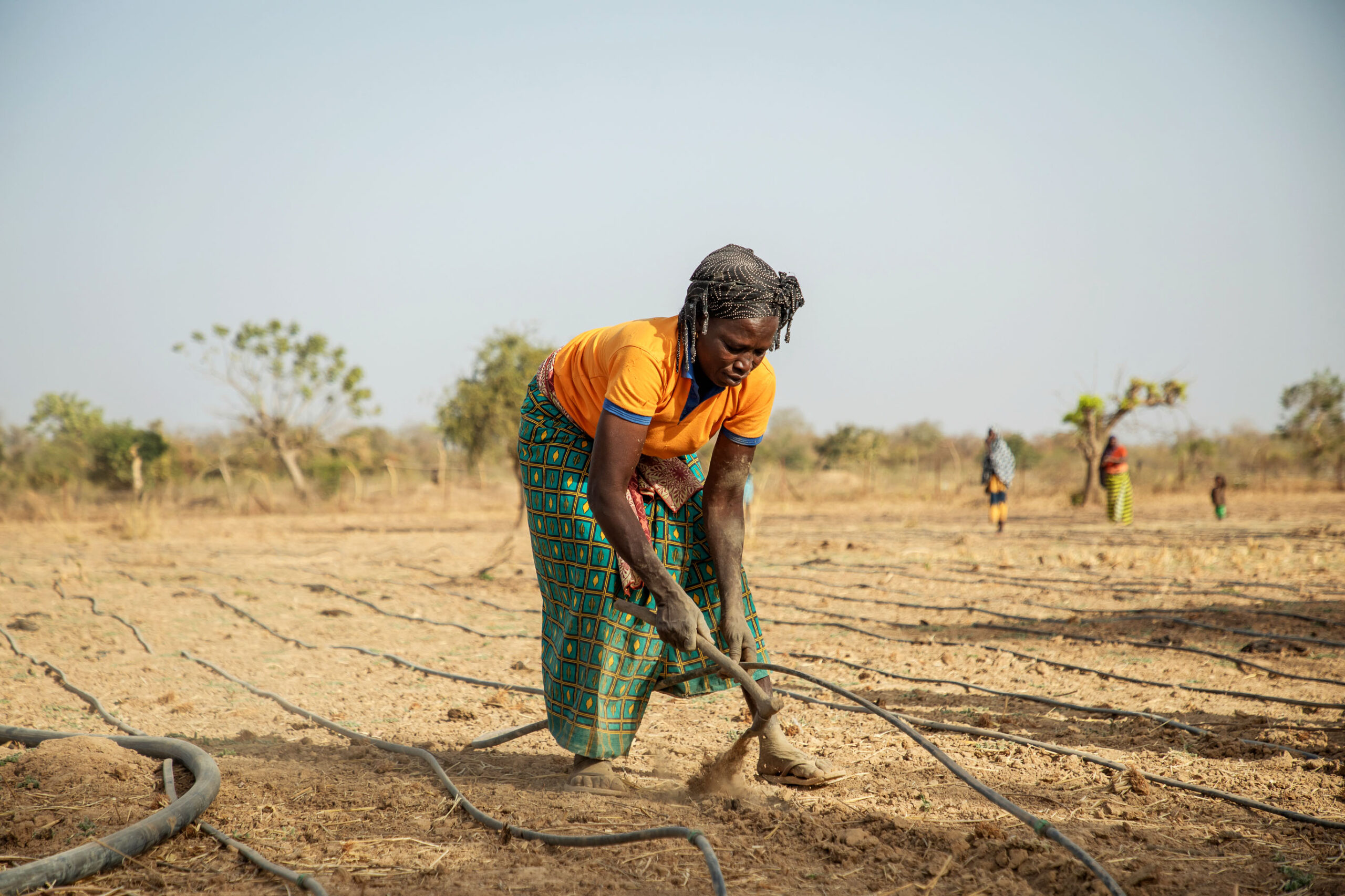
Improved Agricultural Practices
Access to renewable energy has empowered farmers to adopt improved agricultural methods, significantly boosting both productivity and income. Each farmer has experienced a minimum income increase of £64.
As I write, modern tools and techniques are now within reach, enabling farmers to maximize their yields. For instance, improved crop spacing allows them to use fewer seeds while enhancing soil productivity, effectively doubling their income. The drip irrigation systems we deploy ensure water is used efficiently, reducing waste, and promoting healthier crops.
In addition, solar-powered equipment, such as water pumps, has reduced dependence on fossil fuels, lowering both costs and environmental impact. Replacing electric pumps with solar ones has also led to monthly savings of nearly £200-£380.
The introduction of biodigesters has modernized waste management on farms. These systems convert organic waste into nutrient-rich slurry, serving as an excellent fertilizer.
The shift to more efficient practices is evident in the lush, green fields and the smiles of the farmers.
These advancements are boosting agricultural output and improving the quality of life for farming communities in Burkina Faso.
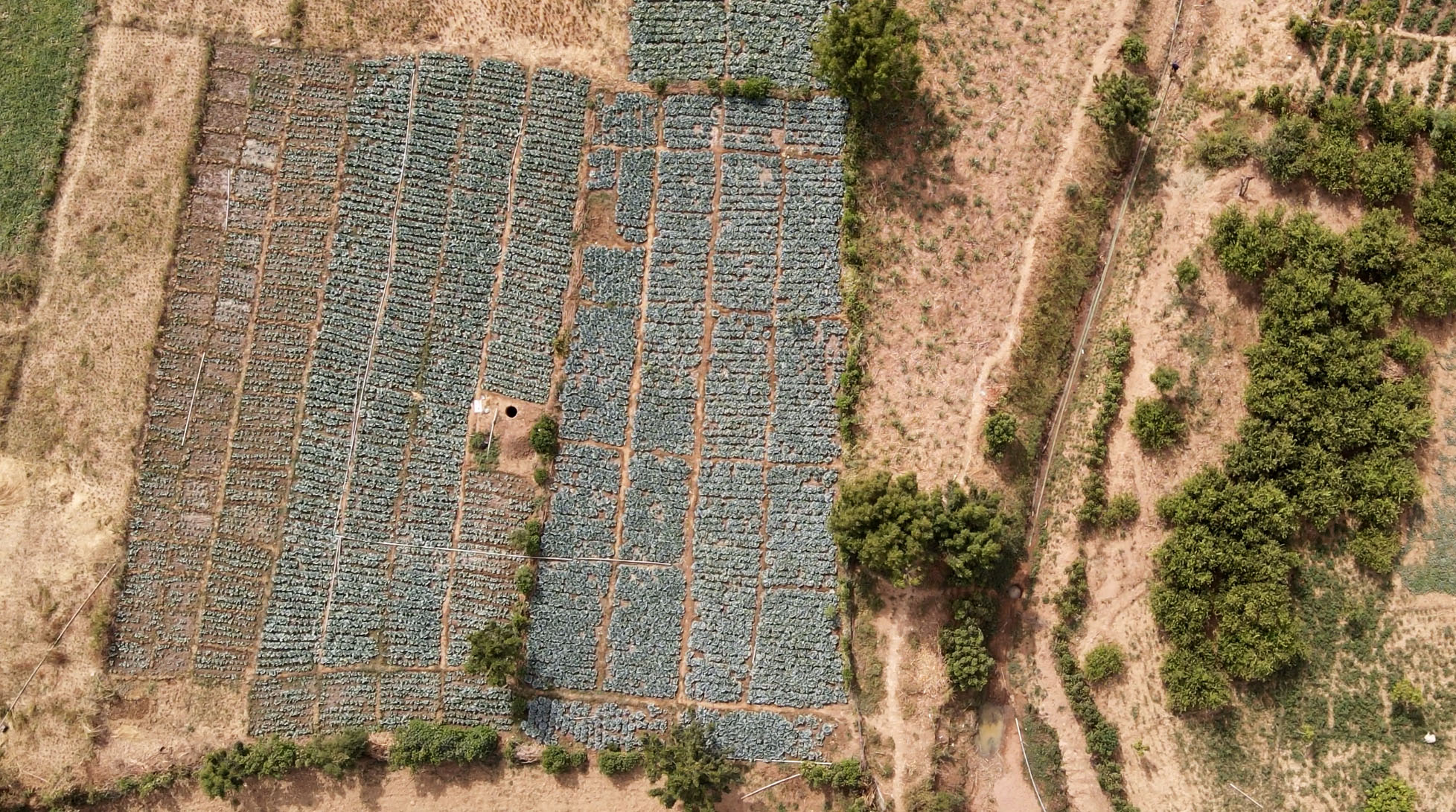
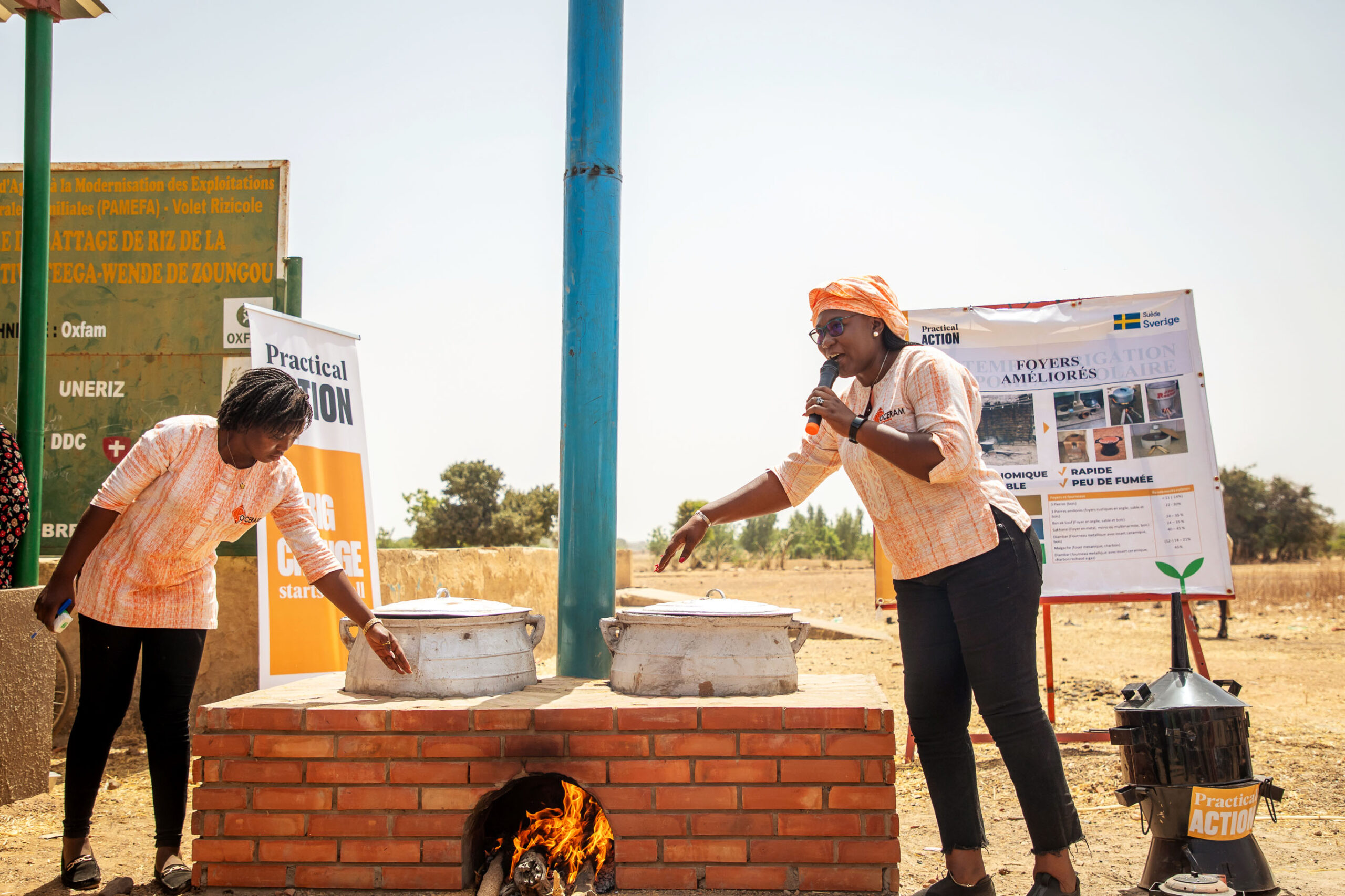
Improved Cookstoves
The introduction of improved cookstoves is another significant aspect of our work. Much like biogas, these stoves are more efficient and they are shared by whole communities.
Beyond their environmental benefits and the reduction of smoke inhalation for women, they have become quite popular, fostering communal cooking gathering and socialising.
These stoves are particularly well-suited for tasks like rice parboiling and shea butter production.
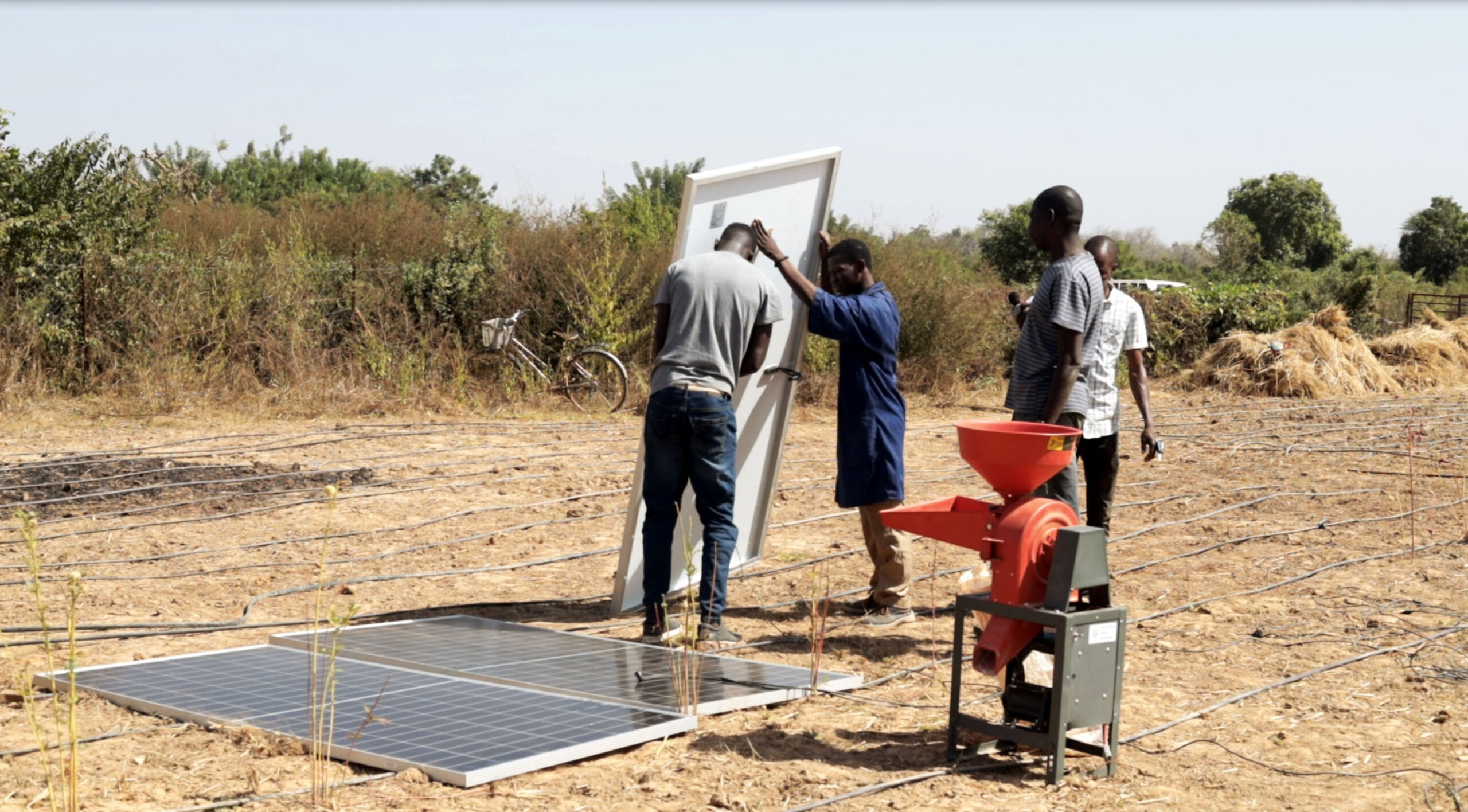
Training and building skills
Training is a crucial part of our work, empowering farmer groups with the skills and knowledge to make the most of renewable energy. Our training programmes cover everything from the basics of solar power to advanced energy management techniques.
Through hands-on sessions, we showcase a range of energy products tailored to the needs of each community.
Farmers learn how to maintain systems, ensuring they can manage their energy resources sustainably over the long term.
These training sessions also serve as a bridge between farmers and last-mile energy distributors, facilitating commercial links and potential sales of energy products. By the end of the programme, farmers are equipped with practical knowledge and the tools to improve their agricultural practices, increase productivity, and generate additional income from renewable energy.
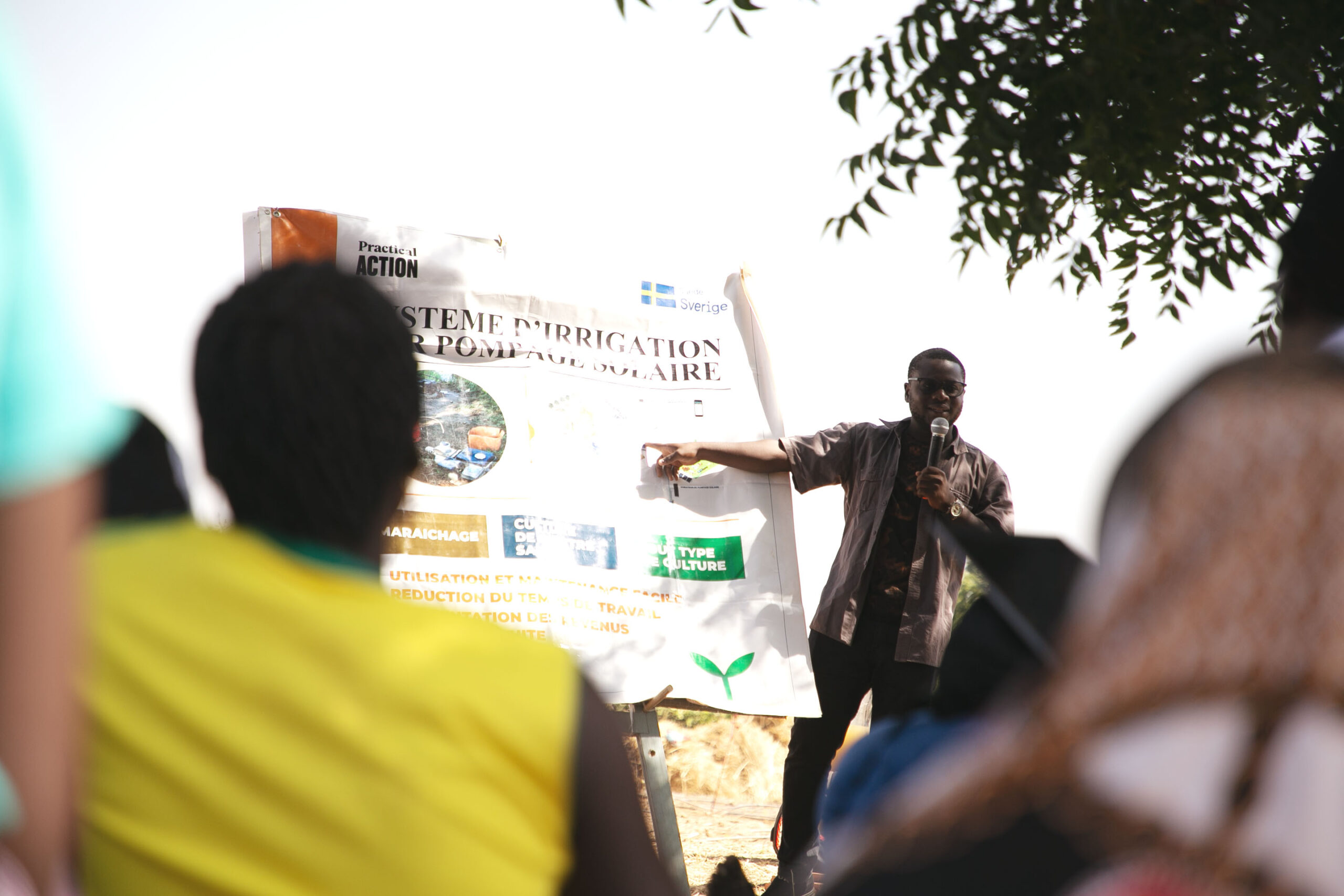
Working with women
Women are at the heart of our work, gaining access to energy and resources that transform their livelihoods and uplift their communities. We work with several all-women cooperatives in Toece, Zoungou, and Gampela villages, as well as in Ouagadougou, the capital of Burkina Faso, where women play key leadership roles in driving change.
During a conversation with Awa Convolbo, President of the Lagumtaab La Panga Cooperative in Toece, she shared her thoughts on the impact of our work in the area:
“Working with Practical Action has been life-changing for us. The training on renewable energy has reduced our reliance on firewood and charcoal, benefiting not just our cooperative but the entire community. My participation in the knowledge exchange program to Rwanda showed me the potential of renewable energy and inspired me to restructure our women’s group with better financial management and saving practices, similar to what I saw in Rwanda.
“This empowerment has led to increased income and financial stability, allowing me to support my family and pay for my children’s school fees. My husband is also proud to see me contributing to our household finances.”
The resilience of the women I spoke to was truly inspiring as they balance farming, caregiving, and leadership within their communities.
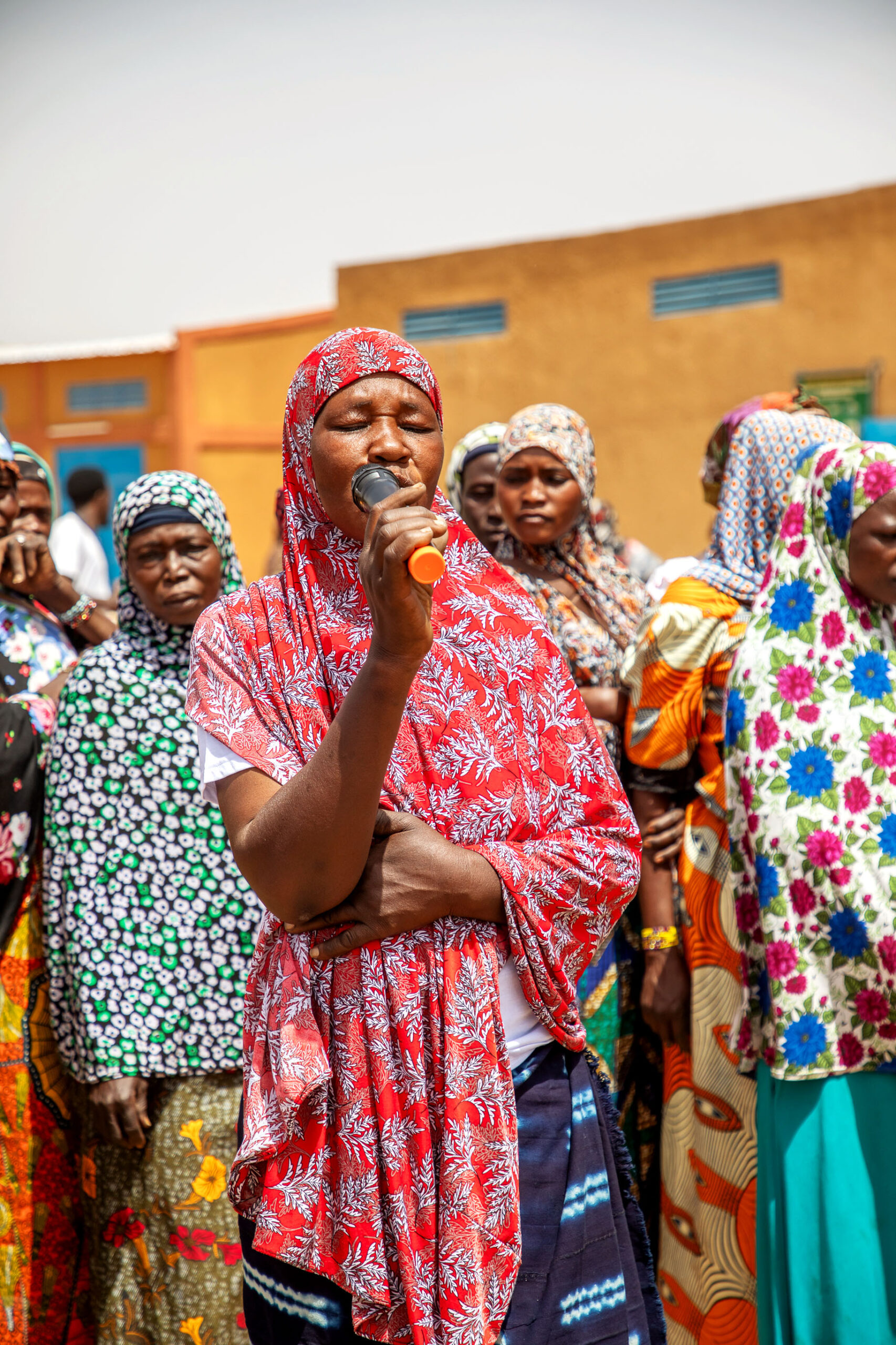
Working the markets
As farmers increase production and their ability to store produce, they also need to access markets and sell at fair prices.
Practical Action’s support has been crucial in this regard, providing new techniques, better storage solutions, and helping farmers connect directly with markets.
For example, rice farmers in the Zoungou community can now parboil and process their rice more efficiently, thanks to the energy solutions provided. This not only improves the quality of their produce but also increases its market value.
By facilitating connections between farmers and local markets, Practical Action ensures that farmers can sell their produce steadily, securing a reliable income and enhancing their quality of life.
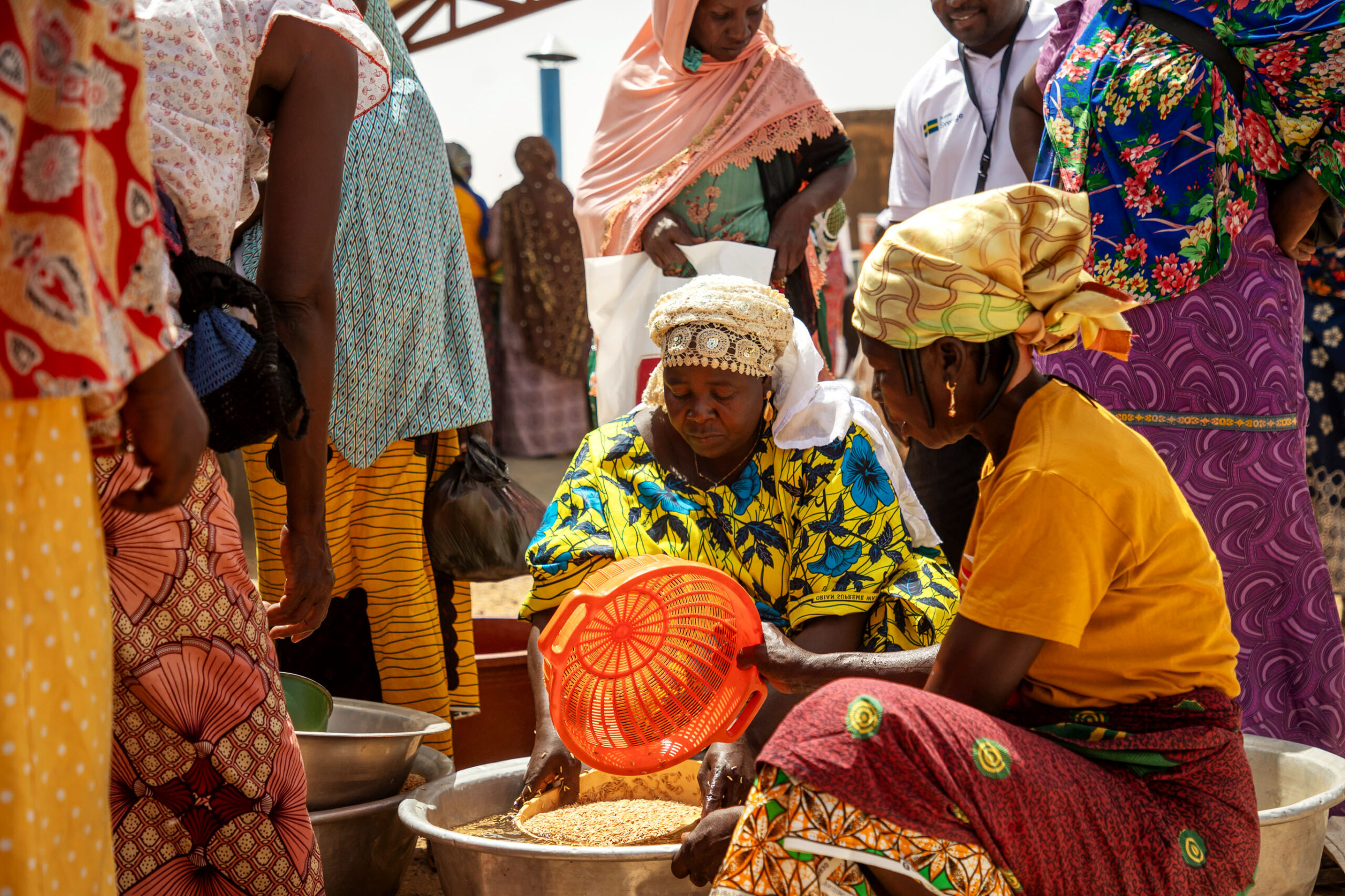
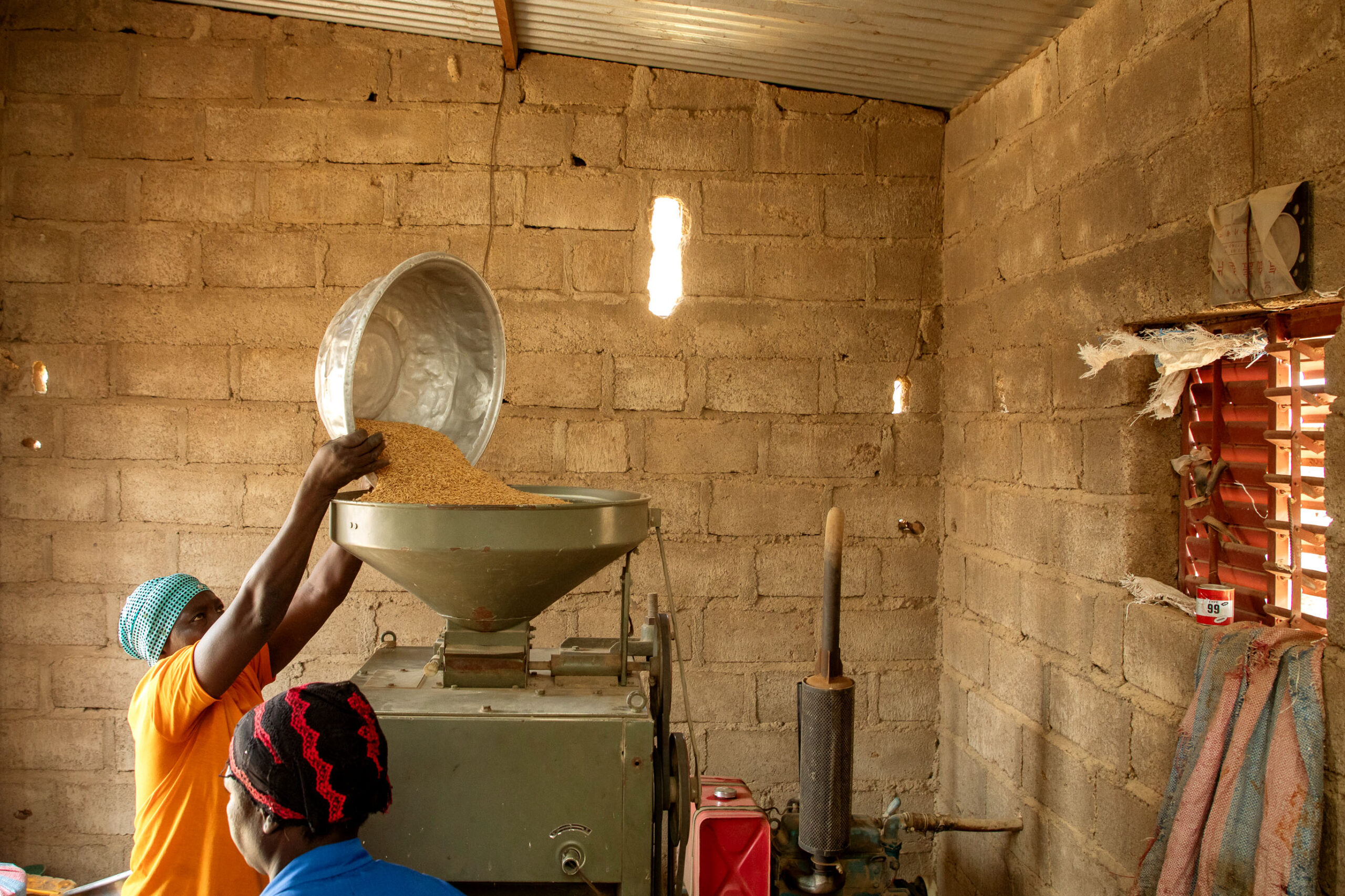
A Confident future
The future looks promising for Burkina Faso’s farmers as clean energy drives their journey towards sustainable development.
One person who represents this is Issa Birba, a local chief and President of the onion farmers’ cooperative in the Zoungou community.
His enthusiasm is contagious, especially when speaking about a knowledge exchange trip to Rwanda, which was supported by Practical Action.
In Rwanda, Issa witnessed firsthand how clean energy is changing farming practices. He returned home inspired by its potential for Burkina Faso.
Reflecting on the impact in his own community, he said:
“The installation of the solar irrigation system and biodigester has significantly improved our lives. We no longer have to rely on costly and unreliable fuel-powered machines, and this has given us hope for a better future.”
Issa envisions a future where hard work, innovation, and the adoption of clean energy will bring lasting change and greater prosperity to their communities.
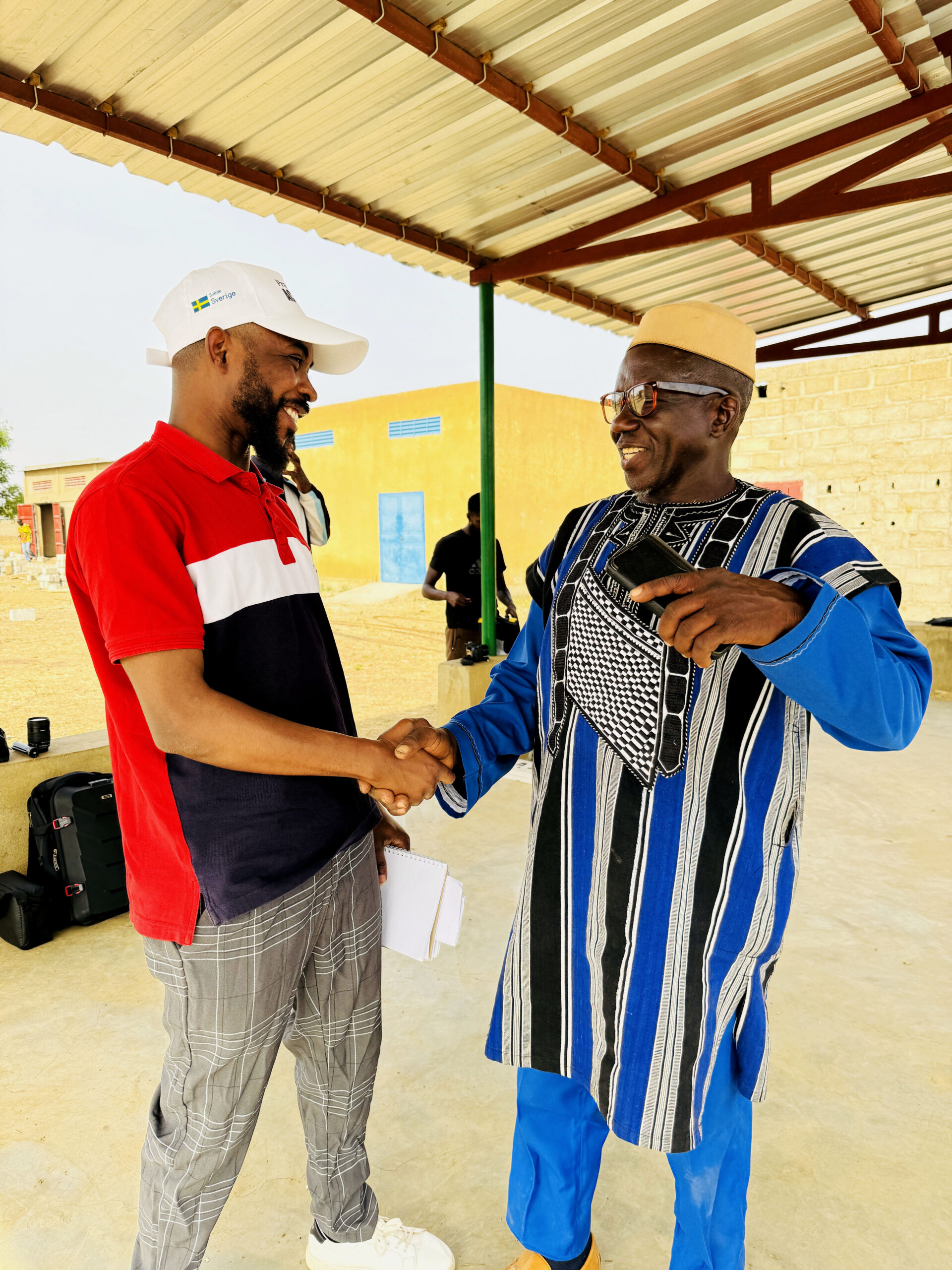
Plans for the future
During my visit, one of the most insightful moments was my conversation with Edwin Obiero, the West African Director for Practical Action.
Eddie stressed that climate change is a critical challenge, with floods and droughts severely affecting vulnerable communities. He emphasised the urgent need for innovative solutions to protect livelihoods and tackle gender inequality, which is crucial for achieving the Sustainable Development Goals (SDGs).
Eddie outlined Practical Action’s ambitious plans for the next three years, which include expanding clean energy projects such as solar irrigation systems and biodigesters across the region. They also plan to strengthen cooperatives by enhancing their capacity for commercialisation and financing, and to scale up the dissemination of the Yiriwali app for knowledge exchange.
“These initiatives will not only improve health outcomes and reduce environmental impact but also empower communities to thrive in the face of climate change,” Eddie said.
He highlighted the power of bold partnerships and urged donors to support these transformative efforts.
Our team’s shared vision and commitment left me inspired and hopeful for the future.
